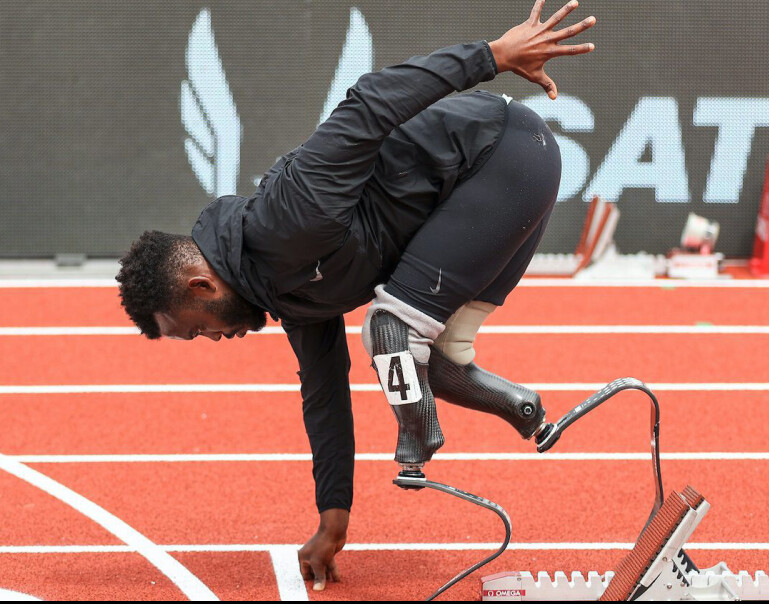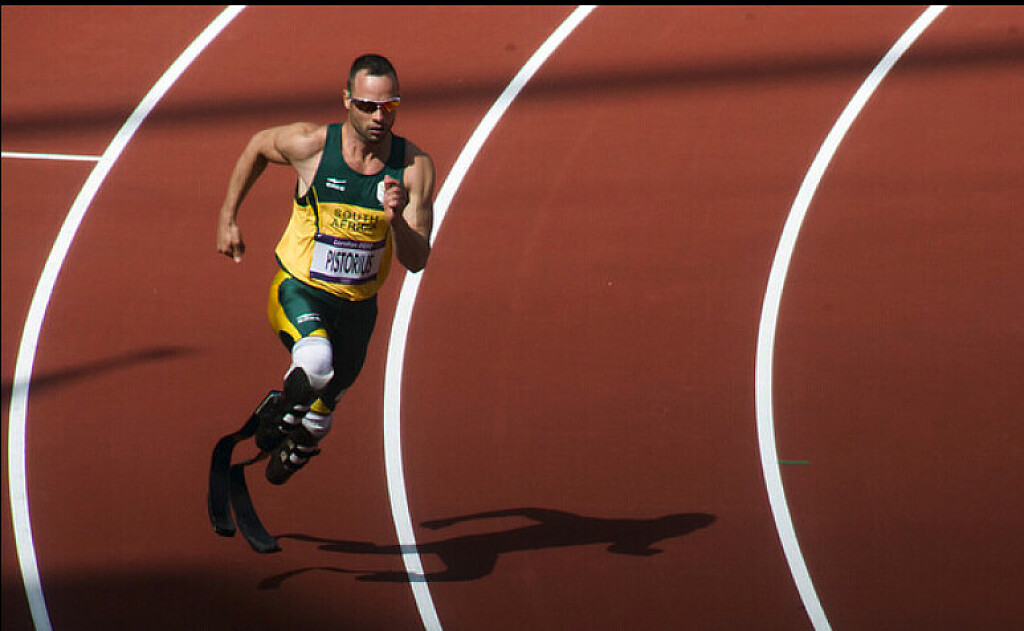Running News Daily
Running News Daily is edited by Bob Anderson. Send your news items to bob@mybestruns.com Advertising opportunities available. Train the Kenyan Way at KATA Kenya and Portugal owned and operated by Bob Anderson. Be sure to catch our movie A Long Run the movie KATA Running Camps and KATA Potato Farms - 31 now open in Kenya! https://kata.ke/
Index to Daily Posts · Sign Up For Updates · Run The World Feed
Study finds blade runners do not have a competitive advantage
Are prosthetic, “man-made” limbs more efficient or powerful than biological legs? This has been debated in track and field circles for years, but recent research suggests what amputee runners have known all along–they aren’t. At least, not over 400 metres.
A recent study from the University of Colorado at Boulder found that blade runners, including the world’s fastest 400-metre sprinter, Blake Leeper of Tennessee, have no competitive advantage over non-amputee runners. Instead, they likely have a significant disadvantage.Prosthetic limbs, particularly those designed for athletic performance, have come a long way since Terry Fox made his inspiring, yet at times painful-looking, journey across Canada.

In the last decade, we’ve seen amputee runners run ultramarathons and set Guinness World Records, and many of us recall Oscar Pistorius, the double-amputee blade runner from South Africa who became the first to win a non-disabled medal at the 2011 World Track and Field Championships (he won silver in the 400m). Pistorius was later convicted of murder in the death of his girlfriend, Reeva Steenkamp, and remains in prison today.
Back in 2011, Pistorius had to take legal action against the IAAF (now World Athletics) to allow him to compete in the World Championships, since the governing body of track and field claimed his prosthetic limbs gave him an advantage over his competitors.
Leeper, who is also a double-amputee and the fastest blade runner over the 400m distance today, has faced similar rejection. He was ruled ineligible to compete at the 2020 Tokyo Olympic Games due to the perception that his “blades” gave him an unfair advantage.
The study
As it turns out, two legs do appear to be better than none, despite the incredible technology behind today’s prosthetic limbs. The study, published in the journal Royal Society Open Science, collected performance data from Leeper, Pistorius and six other bilateral amputee sprinters and compared that to the best non-amputee sprinters in the world across five performance metricLeeper also visited the researchers’ lab for a series of tests to measure his acceleration out of the starting blocks, maximum speed along straightaways and around curves, velocity at aerobic capacity and sprint endurance (all-out effort). This information was also compared to available data from elite non-amputee runners.
The research found that runners using prostheses were 40 per cent slower out of the starting blocks, had 19 per cent slower velocity at aerobic capacity and were one to three per cent slower around curves, compared to non-amputees.
“We found that no athlete with prosthetic legs has ever performed better than elite non-amputee athletes in lab-based experiments in any measure that relates to sprinting performance,” said first author Owen Beck.
The researchers presented their preliminary findings to the Court of Arbitration for Sport in 2020 in a bid to get Leeper to an Olympic start line, but the athlete was yet again deemed ineligible–the court ruled that his prostheses made him too tall. (The same researchers had found in a previous study that height did not provide an advantage when it comes to maximum sprinting speed, but Leeper was still ruled ineligible.)
While their results didn’t help Leeper this time, the researchers hope their work will change the conversation to provide more opportunities for amputee runners.
“A lot of assumptions have been made about running prostheses and performance with no data to support them,” said senior author Alena Grabowski, associate professor of integrative physiology at CU Boulder. “I hope this will get people to really question rules being put into place that keep athletes with disabilities from competing even when they have shown with science that they can compete fairly.”
by Running Magazine
Login to leave a comment




